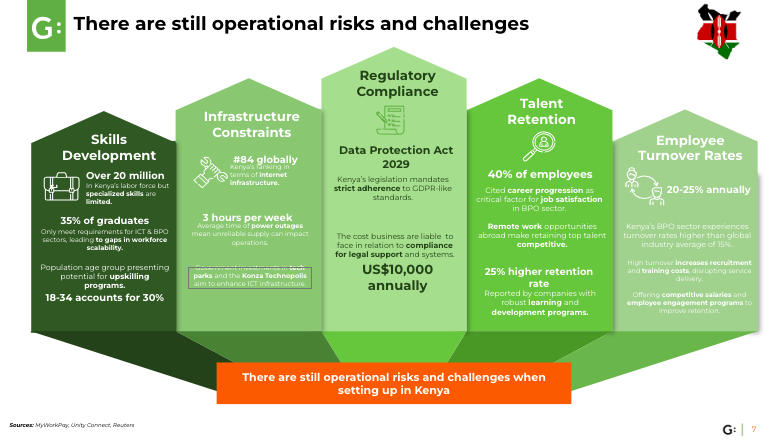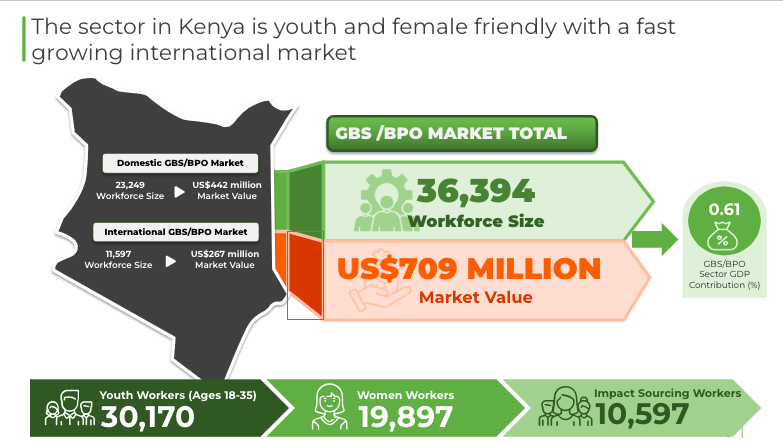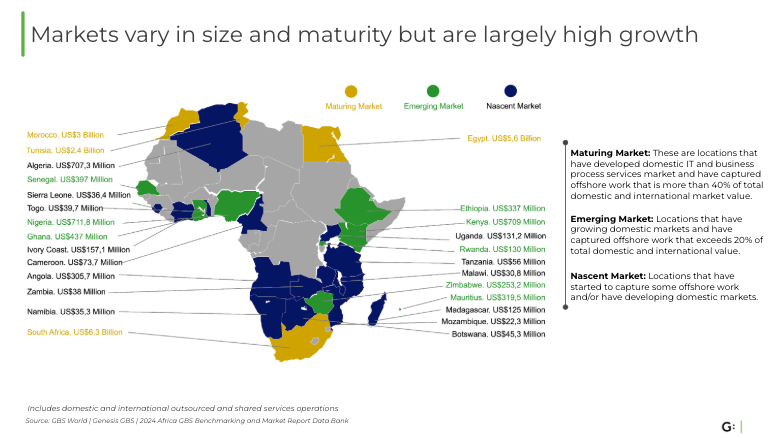
Beyond ‘Silicon Savannah:’ A job creation playbook
3 November 2025
Jon Beardsley
'Silicon Savannah' sounds great, but as head of digital livelihoods at Genesis, I see beyond the label. Kenya's challenge isn't potential, but executing the practical work to become a global tech powerhouse.
Kenya's GBS/BPO sector shows robust 18.8% annual growth, attracting global attention. However, this growth is at a critical juncture. We must choose between a low-margin, cost-driven future and a high-value ecosystem driven by intellect and innovation.
The new frontier of digital work
The modern customer experience specialist is evolving from routine tasks like data entry to complex, high-value problem-solving. They leverage AI for sentiment analysis, handle exceptions empathetically, and provide strategic product feedback, shifting from script-readers to problem-solvers.
We need the builders: the architects of our digital world. This group includes the foundational roles like software and devOps engineers, but it’s increasingly defined by the critical ML engineers who build and refine the AI models that power modern business.
We need the strategists & humanisers. It’s not enough to just build technology; it must be managed and aligned with human values. This is where product and programme managers prove their worth, alongside entirely new roles like the 'AI community curator,' who ensures AI is locally relevant and trustworthy.
And we need the guardians. As our digital footprint expands, so does our vulnerability. This makes cybersecurity experts and data scientists, the professionals who protect and interpret our most valuable digital assets, more essential than ever.
The unbeatable human advantage
In an AI-augmented world, the most important attributes to uncover for any candidate are profoundly human: "Do you know how to think, collaborate, communicate and learn?”. Technical skills are the price of entry, but your real value lies in these uniquely human competencies.
How you think is paramount. This means demonstrating a range of skills from strategic and critical thinking to lateral, creative and design thinking.
Of course, AI cannot sell your product or lead your team. The workforce needs to communicate empathetically, with self-awareness, and work effectively in teams, often utilising proven frameworks. Clear communication and mastery of efficient collaboration tools like Slack and ClickUp are non-negotiable.
A no-nonsense policy playbook
Recognising this potential is one thing - creating the conditions for it to flourish is another. To fully capture this opportunity, Kenya must implement coordinated reforms across five key areas.
We must evolve the Special Economic Zone (SEZ) model. The current rigid framework should be updated to allow for company-level SEZ designation for job-creating firms. This change would decentralize jobs and spur growth in cities like Kisumu and Nakuru, spreading opportunities beyond Nairobi.
Second, we must introduce aggressive fiscal and tax incentives that at least match competitors like India, South Africa and Jamaica. This includes corporate tax holidays for new entrants. It’s also essential to provide investor clarity by codifying standard transfer pricing at a cost-plus 5% rate.
Thirdly we need to invest in leadership programs to address the middle-management gap. Offer expedited, at-cost, two-year Class D work permits for companies actively tackling Kenya's unemployment.
Fourth is infrastructure enhancement. While Kenya's foundation is strong, we can’t be complacent. To attract top-tier global clients, we must ensure buildings have redundant high-speed fibre connections, uninterrupted power supply, and world-class 24/7 security. For international business, reliability is everything.
Kenya needs to actively promote investment and coordinate its ecosystem to attract Global Capability Centres (GCCs), not just traditional outsourcing. This involves creating a compelling value proposition and a "one-stop-shop" for multinational investors to streamline their setup and reduce bureaucratic hurdles.
The talent, the energy, and the ambition are here. I see it every day. What we need now is the political will and the unwavering private-sector partnership to implement this focused, practical, and bold policy playbook.


